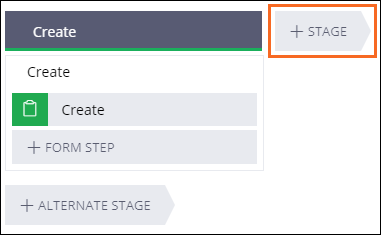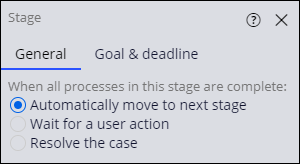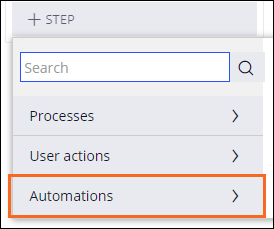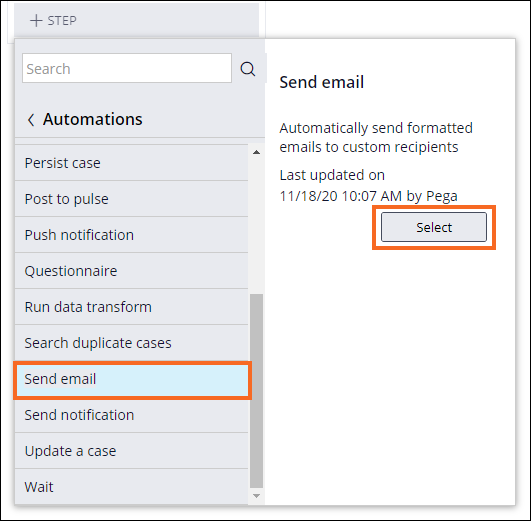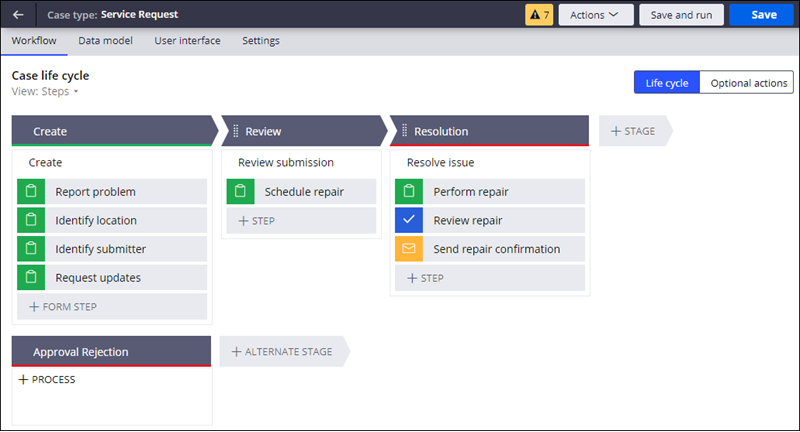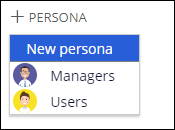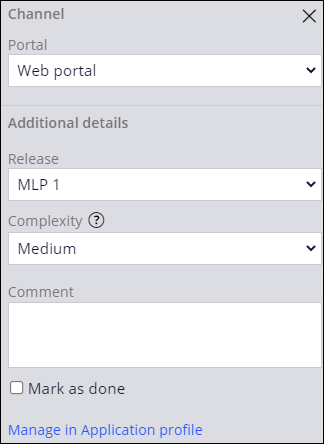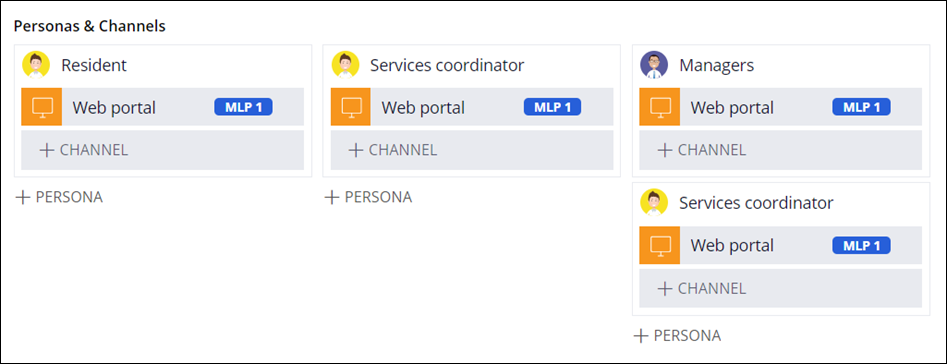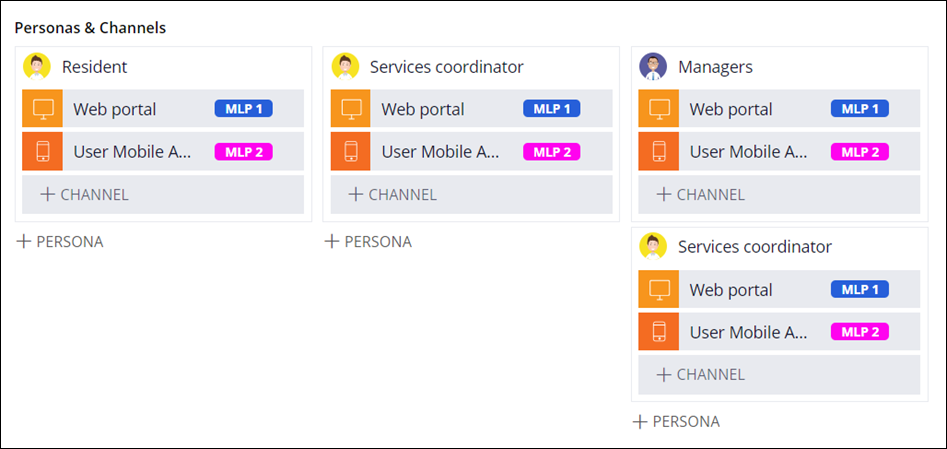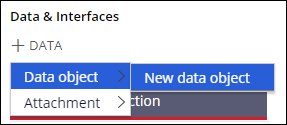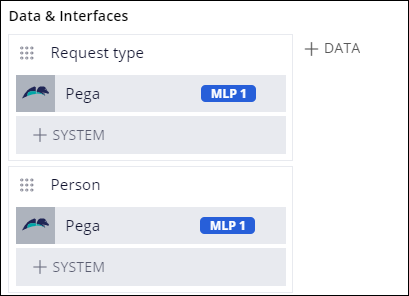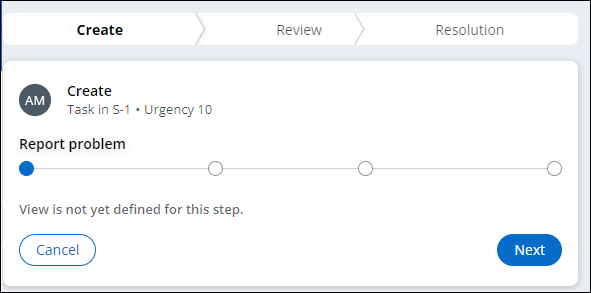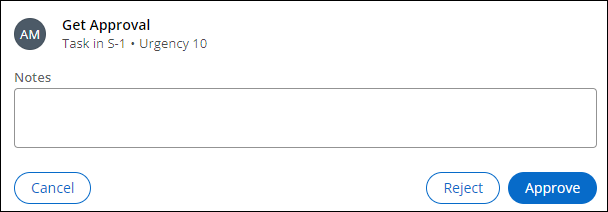
Designing a Case Life Cycle
8 Tasks
30 mins
Scenario
Note: The framework of this challenge uses the view-based Constellation architecture of Pega Platform. To practice this challenge on the traditional UI-based architecture Theme Cosmos, see the Designing a case life cycle version 8.7 challenge.
The mayor of MyTown wants to increase resident engagement and improve the town’s responsiveness to issues raised by residents.
To achieve this goal, the services coordinator wants residents to submit service requests that available city services can resolve. To begin the process, the mayor and the services coordinator have outlined a workflow for submitting, reviewing, and resolving service requests and have created the Service Request case type to manage such requests.
In MLP1, residents create service requests from the user portal, service coordinators review the requests from the user portal, and department managers and service coordinators resolve the requests from the user portal. In MLP2, residents, services coordinators, and department managers have the option to interact with service request cases from the mobile channel.
The following table provides the credentials you need to complete the challenge.
| Role | User name | Password |
|---|---|---|
| Application Developer | author@mytown | pega123! |
Note: Your practice environment may support the completion of multiple challenges. As a result, the configuration shown in the challenge walkthrough may not match your environment exactly.
Challenge Walkthrough
Detailed Tasks
1 Hide items from the case life cycle view
- In the Pega instance for the challenge, enter the following credentials:
- In the User name field, enter author@mytown.
- In the Password field, enter pega123!.
- In the App Studio navigation pane, click Case types > Service Request to display the Service Request case life cycle.
- Under Case life cycle, click the View: Steps, Personas, Data, Releases (All) menu to display a list of check box items.
Note: As a best practice, first define the case life cycle at a high level to help you determine the personas, channels, and data objects. Hide Personas and Data for now.
- Clear the Personas check box to hide the Personas & Channels section in the case life cycle.
- Clear the Data check box to hide the Data & Interfaces section in the case life cycle and automatically clear the Releases check box.
- Click outside the menu to hide the View: Steps, Personas, Data, Releases menu.
2 Add the Review and Resolution stages
- To the right of the Create stage, click Stage to add a second stage.
- In the text box that is displayed, enter Review to add the second stage name and display the contextual property pane on the right.
- In the General tab of the contextual property pane, select Automatically move to next stage to enable the case to advance automatically when the Review stage is complete.
- To the right of the Review stage, click Stage to add a third stage.
- In the text box that is displayed, enter Resolution to add the third stage name and display the contextual property pane on the right.
- In the General tab of the contextual property pane, select to resolve the case automatically when the Resolution stage is complete.
3 Build the Create stage
- On the Workflow tab, in the Create stage, in the Create process, hover over the Create step, and then click Delete to delete the Create step.
- Click Form Step to add a step to the multi-step form.
- In the field that is displayed, enter Report problem.
- Click Form Step to add a step to the multi-step form.
- In the field that is displayed, enter Identify location.
- Click Form Step to add a step to the multi-step form.
- In the field that is displayed, enter Identify submitter.
- Click Form Step to add a step to the multi-step form.
- In the field that is displayed, enter Request updates.
4 Build the Review stage
- Under the Review stage, hover over Process, and then click Step to choose a step type.
- Click Collect information to add a step that collects user input.
- In the Collect information field, enter Schedule repair to name the step.
- Click the Review process and enter Review submission to replace the process label.
Note: When a new process is created, Pega Platform™ automatically assigns the process name based on the stage name. You can change the default process name after creating the first step in that process.
5 Build the Resolution stage
- In the Resolution stage, hover over Process, and then click Step to choose a step type.
- Click Collect information to add a step that collects user input.
- In the Collect information field, enter Perform repair to name the step.
- Click the Resolution process and enter Resolve issue to replace the process label.
- Click Step > Approve/Reject to add a decisioning task to display an Approve/Reject step under Perform repair and add an alternate stage to the case life cycle.
- In the Approve/Reject field, enter Review repair to name the step.
- Click Step to add the third step to the Resolution stage.
- Click More to display three step type categories: Processes, User actions, and Automations.
- Click Automations to display steps that are automatically performed or processed by the system.
- Click Send email > Select to add a step that automatically sends preconfigured emails.
- In the Send email field, enter Send repair confirmation to name the step.
- In the upper right, click Save. The Service Request case life cycle is displayed with the stages and steps created.
- On the case type navigation bar, in the upper-right, click the configuration issues icon to display the Draft process warnings dialog box.
Note: The dialog displays a warning for each step with an incomplete configuration in the process. The number of warnings varies as you configure the case life cycle. Disregard the warnings, as these issues are addressed in subsequent challenges.
- Click Close modal to return to the case life cycle.
6 Identify the personas and channels for MLP 1
- In the upper-left corner of the case life cycle, click the View: Steps menu to display a list of check box items.
- Select the Personas and Releases check boxes to display the Personas & Channels section in the case life cycle.
- In the Personas & Channels section, in the Create stage, click Persona > New persona to display the New persona dialog box.
- In the Persona name field, enter Residents.
- On the next line, click an icon to represent the image of the new Residents persona.
- Click Submit to dismiss the New persona dialog box and display the Residents persona and Web Portal channel, which is added by default.
Note: To update the Persona name or icon, in the App Studio navigation pane select Users > User Management > Personas. Click on the name of the persona you would like to update and select the Configuration tab. Once the updates have been made, click Save.
- Click the Web Portal channel to display the configuration pane on the right.
- In the configuration pane, in the Additional details section, click the Release list, and then click MLP 1. The MLP 1 tag is displayed on the Web Portal channel in the Case Designer.
- Repeat steps 3-8 to add a new persona named Services coordinator to the Review stage and tag the Web Portal with MLP 1.
- In the Resolution stage, click Persona > Managers to add the Managers persona.
- Repeat steps 6-8 to tag the Manager Web Portal channel with MLP 1.
- In the Resolution stage, click Persona > Services coordinator to add the Services coordinator persona.
- Repeat steps 6-8 to tag the Services coordinator Web Portal channel with MLP 1.
- In the upper right, click Save. The personas and channels for MLP1 have now been created.
7 Identify the personas and channels for MLP 2
- In the Create stage, in the Residents persona, click Channel > Mobile to add the mobile channel to the Residents persona.
- With the User Mobile App channel selected, in the configuration pane, in the Additional details section, click the Release list, and then click MLP 2.
- Repeat steps 1-2 to add and tag the mobile channel for each persona with MLP 2.
- In the upper right, click Save. The channels for MLP2 have now been created.
8 Identify the data objects for MLP 1
- In the upper-left corner of the case life cycle, click the View: Steps, Personas, Releases (All) menu to display a list of check box items.
- In the list, select the Data check box to display the Data & Interfaces section in the case life cycle.
- In the Data & Interfaces section, in the Create stage, click Data > Data object > New data object to display the New data object dialog box.
- In the Name field, enter Request type.
- Click Submit to dismiss the New data object dialog box and display the Request type data object and Pega system of record, which is added by default.
- Click Pega to display the configuration pane on the right.
- In the configuration pane, in the Additional details section, click the Release list, and then click MLP 1.
- Repeat steps 3-7 to add the Person data object to the Create stage with the MLP 1 tag.
- In the upper right, click Save. The data objects and interfaces for MLP1 have now been created.
Confirm your work
- On the Workflow tab, in the upper right, click to save changes and create a new Service Request case type instance.
- In the Report problem view, click Next to proceed to the next view.
- On the Identify location view, click Next.
- On the Identify submitter view, click Next.
- On the Request updates view, click Advance this case.
- On the Schedule repair view, click Advance this case.
- On the Perform repair view, click Advance this case.
- On the Approval step, click Approve to complete the case.
This Challenge is to practice what you learned in the following Module:
Available in the following missions:
If you are having problems with your training, please review the Pega Academy Support FAQs.
Want to help us improve this content?

